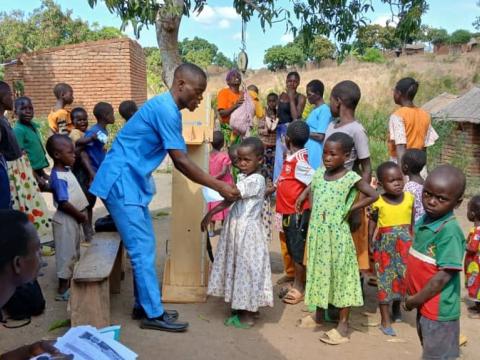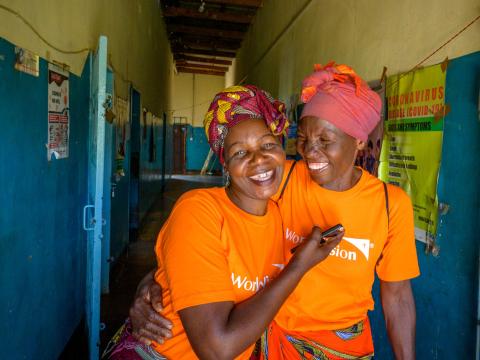CHWs Support Nutrition Assessments in School Feeding Programmes in Malawi Presentation
Download
An Innovative Programme: Community Health Workers (CHWs) Support Nutrition Assessments in School Feeding Programmes in Malawi
This presentation was made by Wezi Kalumba, World Vision Malawi, at the 4th International Community Health Workers Symposium in November 2025.
Between 2023 and 2024, Southern African countries, including Malawi, experienced severe El Niño weather patterns – flash floods and drought – that disrupted crop production and threatened food security across multiple districts. As a result, malnutrition among children aged 0–59 months rose to alarming levels. The 2024 UNICEF SMART Survey reported rates of underweight (12%), stunting (36%), and wasting (2.6%).
In response, World Vision Malawi, under its ENOUGH Campaign and through the Maternal and Child Health Programme in partnership with the T365 Education Programme, launched a corn soya blend school feeding initiative targeting children 3–5-years in Community Based Childcare Centres (CBCCs). The initiative covered 858 CBCCs (91%) across 28 area programmes.
Community Health Workers (CHWs), working alongside Health Surveillance Assistants, conducted key anthropometric measurements (MUAC, weight, height), enabling accurate and timely identification and referral of malnutrition cases. Between April and June 2025, the programme reached 50,777 children – 108% of its 46,800 target – and identified 293 malnourished children (192 mild, 53 moderate, and 43 severe). Additionally, 1,699 children (3.3%) were found to be under-immunised, and 5,475 (10.7%) had not received age-appropriate vitamin A supplementation.
These findings highlight the effectiveness of school feeding initiatives in mitigating child malnutrition during climate-related food crises and highlight the critical role of CHWs in delivering integrated health and nutrition services at the community level.
